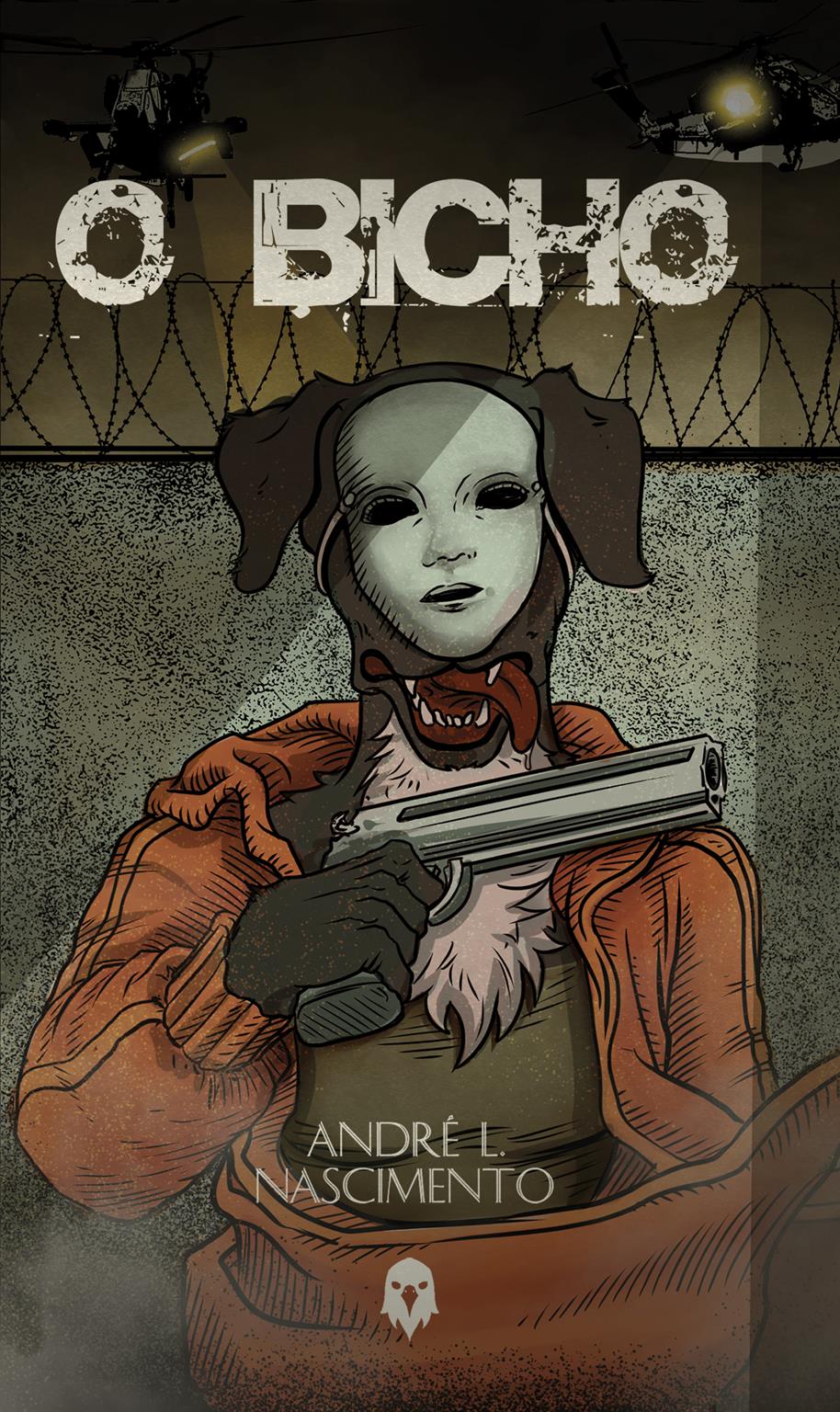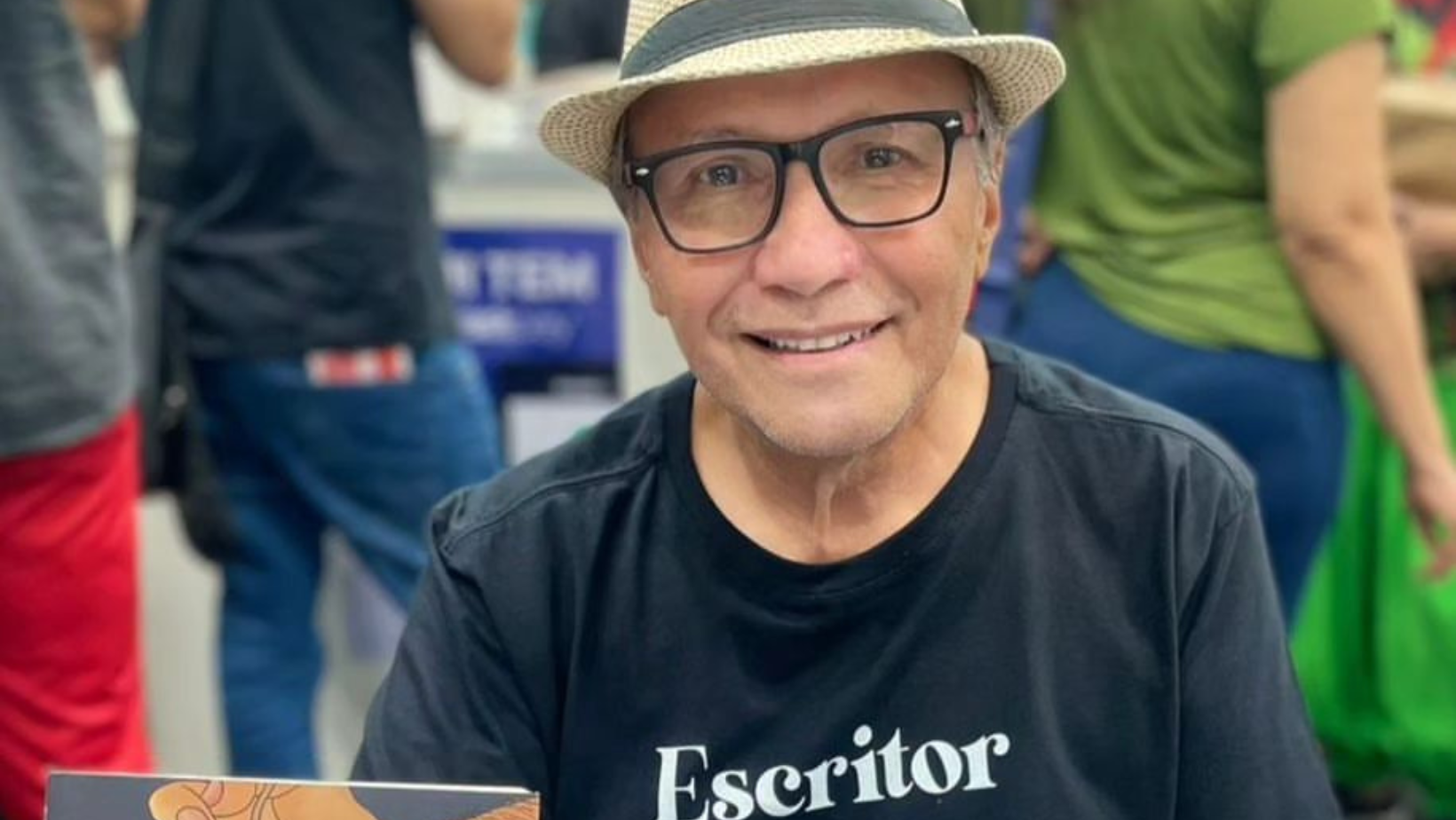In the provocative dystopia “O Bicho”, written by André L. Nascimento and published by Flyve , the rule of humanity is turned inside out, exploring a world where humans are mistreated and oppressed, treated as mere animals. The narrative revolves around Dakota, a dog who rebels against the cruelty and imbalance in society, leading an insurgency to implode the system. With acid humor and sharp criticism of animal exploitation, environmental destruction and social injustice, the work makes a powerful reflection on our reality.
How did the idea to create the dystopia in “O Bicho” come about, where humans are treated like animals?
It all started with the order for a short story, made by my reviewer. The idea was to publish for free on Amazon . This was during the pandemic, the day before the lockdown. As I was leaving the store, a stray dog hid under my car. We fed her and I couldn’t resist, I put her in the car, we went to the veterinary clinic and ran home. She lived as a princess for 15 days, then everything went downhill. She had distemper and we couldn’t save her. I started writing the short story about this, a story in which she was a warrior who fought for a better world, while I still harbored my anger towards whoever had abandoned her in the market and wanted the person to feel the same pain as her. After two weeks, I had a book, and the protagonist was called Dakota, just like the one we rescued.
You mentioned that the protagonist Dakota is a guerrilla fighter for humanity. How did you develop this character and her role in the plot?
I wanted a female character, excluded, discredited and forgotten by systems of power and government, just like minorities in our world, but who was determined and fed on the system itself to become strong and overthrow it. Dakota came like this, the stray dog forgotten among the shit and trash of the favela, but who learned from the newspapers that came through the sewer, to the point of crossing the wall that separated her people and infiltrating that society of appearances, until she toppled her and become a hero. It all came from my own struggle, from women around me, from my love for animals and a message of never giving up.
What were the main inspirations for building the cruel and unbalanced world portrayed in the book?
dystopian books and films , from Blade Runner and Brave New World in 1984, The Matrix and Tron . Contrary to what many have pointed out, Animal Revolution was not the great inspiration, but rather Manuel Bandeira’s poem – O Bicho . In it, we already see the reversal of roles when we read a man who sneaks through the trash like an animalistic creature that confuses the poet. But, above all, the greatest inspiration was our country. We don’t have to go far to see, around us, the craziest dystopia of all.
How did you integrate themes such as gender identity and dictatorial politics into the narrative of “O Bicho”?
From the moment animals live in a world where metropolises are divided into castes and only a few, privileged ones, can vote. In the metropolis of Dakota, Otto, the maned wolf, governs in a way that privileges large multinationals, the church, the university – a company that owns schools and is manipulated by him – and weapons factories. Furthermore, he is capable of killing and destroying any animal that gets in his way, also manipulating the results of experiments, which must always be approved by him, TV, social media and radio. Once again, my own country was the inspiration. Dakota, in addition to all this madness, finds herself in a love triangle with two other dogs, discovering that love doesn’t see gender.

You use acid humor and puns on the names of politicians and influencers. How did you decide to include these elements and what was the readers’ reaction?
Readers love noticing the non-random connections between animals’ characteristics and their names, like a fashionista peacock named Louis Pavvon , for example. Everything is thought of, from the supreme head of the Church – a cobra – to birds with names that refer to famous singers, Pitbull dogfighting owners and the big star of a bullfight, a gallant and cocky bull. I think the biggest figure is Otto, the ruler of the metropolis and his family . It’s funny to see readers’ reactions when they notice that many of the character’s lines are actually the lines of a real politician in Brazilian history.
How did your experience as a vegan influence the creation of the story and the central message of the book?
The main goal of veganism: save humans! Exactly, veganism is not just about protecting animals, it’s about protecting the planet; subsequently, the human race. It is urgently necessary to think about how the thirst for profit has scalped the Earth, how the mass production of beef cattle destroys the planet like a bowling alley (formation of pasture, waste, transport, injection of hormones, fattening, production of grains, slaughter, sale, feces… ) It’s a deadly snowball. This is what is happening in the world of Dakota: the unbridled production of human flesh, in addition to being cruel, heats up and desertifies the planet, leaving no forests left. What about when there is no more planet for our children and grandchildren? Will they eat stones? Does a race that claims to be evolved only see itself as capable of feeling pain?
In the work, you address several complex and dark themes. What were the biggest challenges in balancing these elements with a compelling plot?
Make it clear that, despite being a critical work, O Bicho is a narrative full of adventure, mystery, scares, tension, investigations, fun moments and romance. It’s not theory or boring pamphleteering, it’s a story along the lines of Mission: Impossible , with betrayal and espionage. I want a strong message, but above all I want to turn my reader’s stomach – in every way.
After the success of “O Coelho”, how do you believe “O Bicho” contributes to your evolution as a writer and to the themes you explore?
O Bicho took me out of the box of fantasy and younger audiences, although it is extremely rooted in the new questioning generations; however, it brought me closer to a more adult and critical audience. I felt that I am capable of entertaining and moving, but also leaving a legacy of reflections, questions and teachings about respect, rethinking everyday life, who we vote for, not believing in what we see on social media, fighting for your rights and, above all, everything, from those who have no voice. There are many causes, what is yours?
Follow André L. Nascimento on Instagram





